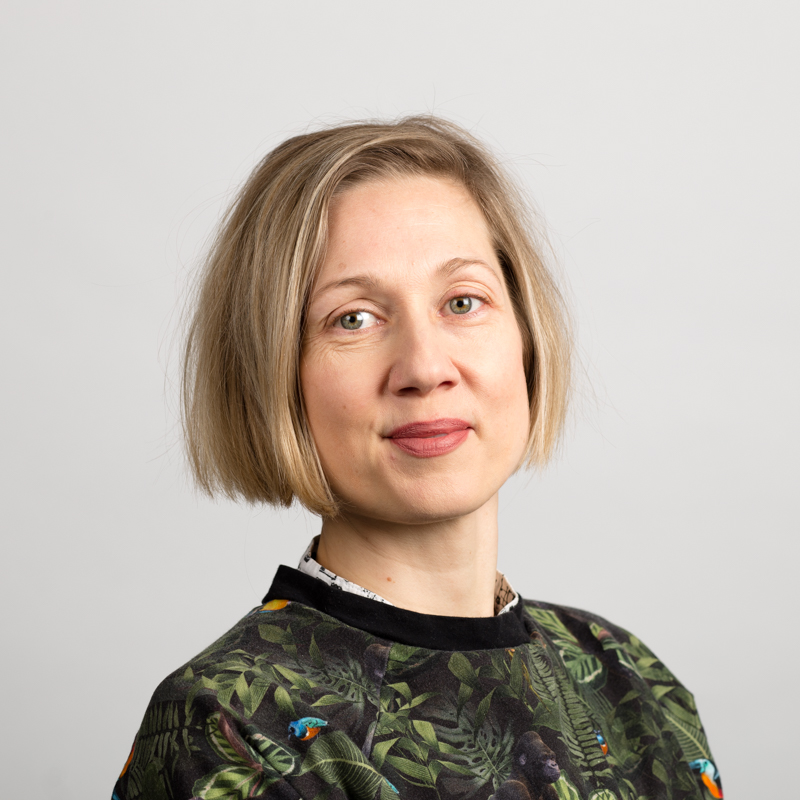With the support of secondary literature, archival research, and interviews, project members will develop CrimeLines (i.e., genealogical timelines) of different European crimscapes (of drug use, migration, sex work, infectious diseases, prisons, LGBT identities, and hate speech). Ethnographic fieldwork will then enable conceptualizing the citizenship dynamics emerging in the navigation of democratic participation and freedoms with legal regulation and crime control measures. Building on this, researchers will highlight and open for discussion dilemmas of democratic governance to enhance actors’ lived realities, rights claims, and desired futures.
CrimScapes: Navigating citizenship through European landscapes of criminalisation

Project focus
The CrimScapes project explores the expanding application of criminal law, crime control measures, and imaginaries of (il)legality as responses to, and producers of, a growing politics of threat across the European region. Given the inherent tensions between democratic processes and ever-expanding legal regulations, the project investigates this reliance on criminalization as a challenge to the participatory nature of democratic societies and as possible symptoms and causes of the general sense of turbulence dominating much of economic, social, and political life today. It analyses the motivations behind and implications of criminalization for the varied actors affected by and (re)producing landscapes of criminalization (i.e., crimscapes).


Contribution

Team

Project Leader:
Prof. Dr. Beate Binder, Humboldt-University Berlin (Germany)
Half of Prof. Dr. Beate Binder’s professorship belongs to the Institute for European Ethnology and the other half to the Center for Transdisciplinary Gender Studies (partly). She works, researches, and teaches at the intersection of European ethnology and gender studies. Prof. Binder is generally interested in how gender is produced and maintained in interaction with other socially effective categorizations and how this can be described and analyzed using gender and cultural theory concepts and methods of (queer) ethnography. Her current fields of research are the history of feminist cultural anthropology and gender research in European ethnology, the (historical and contemporary) connection between (urban) space and sexuality, practices, and politics of memory, and cultural anthropological research in the field of politics and law, i.e., questions political and legal anthropology.


Principal Investigator:
Dr. Mathilde Darley, Université Paris Saclay (France)
Dr. Mathilde Darley is a researcher in political sciences at the National Center for Scientific Research (CNRS) in Paris and vice-director of the Center for Sociological Research on Law and Criminal Justice Institutions (Cesdip) in Guyancourt. She has been working in different research areas, including Germany, France, Austria, and the Czech Republic. Her research interests are migration control and detention centers for irregular migrants, the role of race and gender in policing strategies, the regulation of prostitution, and the implementation of policies dedicated to the fight against trafficking for sexual exploitation.


Principal Investigator:
Dr. Salla Sariola, University of Helsinki (Finland)
Dr. Salla Sariola is a research group leader in Sociology at the University of Helsinki that focuses on human-microbial relations. Her research interests include clinical trials in low and middle-income countries and community engagement in global health research. She has also explored gender and sexuality and HIV activism and interventions in her previous work. Dr. Sariola is the author of Ethics and Politics of Community Engagement in Global Health Research (2020, with Lindsey Reynolds, Routledge), Research as Development: Biomedical Research, Ethics and Collaboration in Sri Lanka (2019, with Bob Simpson, Cornell University Press) and Gender and Sexuality in India: Selling sex in Chennai (Routledge 2012).


Principal Investigator:
Dr. Agata Dziuban, Jagiellonian University (Poland)
Dr. Agata Dziuban is a sociologist, outreach worker, and translator. She is involved in implementing research projects devoted to the situation of sexually workers in Poland and Europe. In 2016-2019 she was a member of the project’s research team, "Disentangling European HIV / AIDS Policies: Citizenship, Activism, and Health" (EUROPACH).


Researcher:
Dr. Friederike Faust, Humboldt University Berlin (Germany)
Dr. Friederike Faust is a research assistant at the Institute for European Ethnology at the Humboldt University in Berlin. Her dissertation is about football and feminism. Budrich UniPress published an ethnography of gender-political interventions in 2019. In addition to ethnological sports and gender research, she works on social movements, NGOs, and forms of political action.


Researcher:
Dr. Todd Sekuler, Humboldt University Berlin (Germany)
Dr. Todd Sekuler holds a Ph.D. from the Institut für Europäische Ethnologie at Humboldt-Universität zu Berlin and a Master in Public Health (MPH) focusing on sexuality, gender, and health – from Columbia University’s Mailman School of Public Health in New York City. He has worked on various HIV/AIDS-related research projects in and on the field of public health. Currently based at the Institut für Europäische Ethnologie at Humboldt-Universität zu Berlin, Sekuler has worked with Dr. Agata Dziuban over the past three years together investigating European-level HIV/AIDS policy-making, negotiation, and contestation as part of EUROPACH.


Researcher:
Carmen Grimm, Humboldt University Berlin (Germany)
Carmen Grimm is a research assistant in research projects at the Institute for European Ethnology, Humboldt University Berlin


Researcher:
Klara Nagel, Humboldt University Berlin (Germany)


Researcher:
Dr. Agata Chełstowska, Jagiellonian University (Poland)
Dr. Agata Chełstowska is a cultural anthropologist, sociologist, interdisciplinary researcher. She wrote a Ph.D. dissertation on child support and non-compliance in the Institute of Applied Social Sciences, the University of Warsaw (the dissertation currently awaits reviews). Her research interests include gender, love, work, care, and economy. In 2012 she visited New School for Social Research with a scholarship from the Kościuszko Foundation. In 2010 she visited the Anthropology Departments of Copenhagen University (Scholarship of Danish Government), where she taught a course titled „Introduction to Anthropology of Postsocialist Countries.” She is the author of numerous research reports on gender, equality, political participation, economy, and relations between the Catholic Church and Polish state, published by a leading Polish think-tank, Institute for Public Affairs.


Researcher:
Dr. Justyna Struzik, Jagiellonian University (Poland)
Dr. Justyna Struzik is an assistant professor at the Institute of Sociology, Jagiellonian University. She devoted her doctoral thesis to queer mobilization in Poland. Her book Queer Solidarity was awarded as the best gender book by the Polish Gender Society in 2020 and received the Stanisław Ossowski Prize in 2021. She has experience conducting research projects using qualitative methods and based on cooperation with NGOs. She co-conducted pioneering research on the situation of non-heterosexual women outside big cities (together with N. Sarata and E. Furgał). She is an active member of the Gender Sociology Section of the Polish Sociological Association – currently Chair of the Section’s Board. Her research interests revolve around social movements, the sociology of gender and sexuality, social inequalities, and grassroots strategies of responding to them.


Researcher:
Dr. Jérémy Geeraert, Université Paris Saclay (France)
Dr. Jérémy Geeraert is currently a postdoctoral researcher at Cesdip at Centre national de la recherche scientifique (CNRS). He is carrying out a research project on the criminalization of migration help which explores navigation practices and the constitution of figures of crime in the fields of search and rescue in the Mediterranean and activism at the French-Italian border. Between 2018 and 2021, he was successively grant holder of the Foundation of the Berlin House of Representatives, the Fritz Thyssen Foundation, and the Alexander Humboldt Foundation. In addition, he carried out a research project on the interrelationships between migration and health policies. His research focuses on the access to health care for migrants in situations of multiple vulnerabilities and without health coverage in Germany.


Researcher:
Juulia Kela, University of Helsinki (Finland)
Juulia Kela is a Ph.D. researcher at the University of Helsinki. Her academic interests are in the connections between law, medicine, and criminality.
